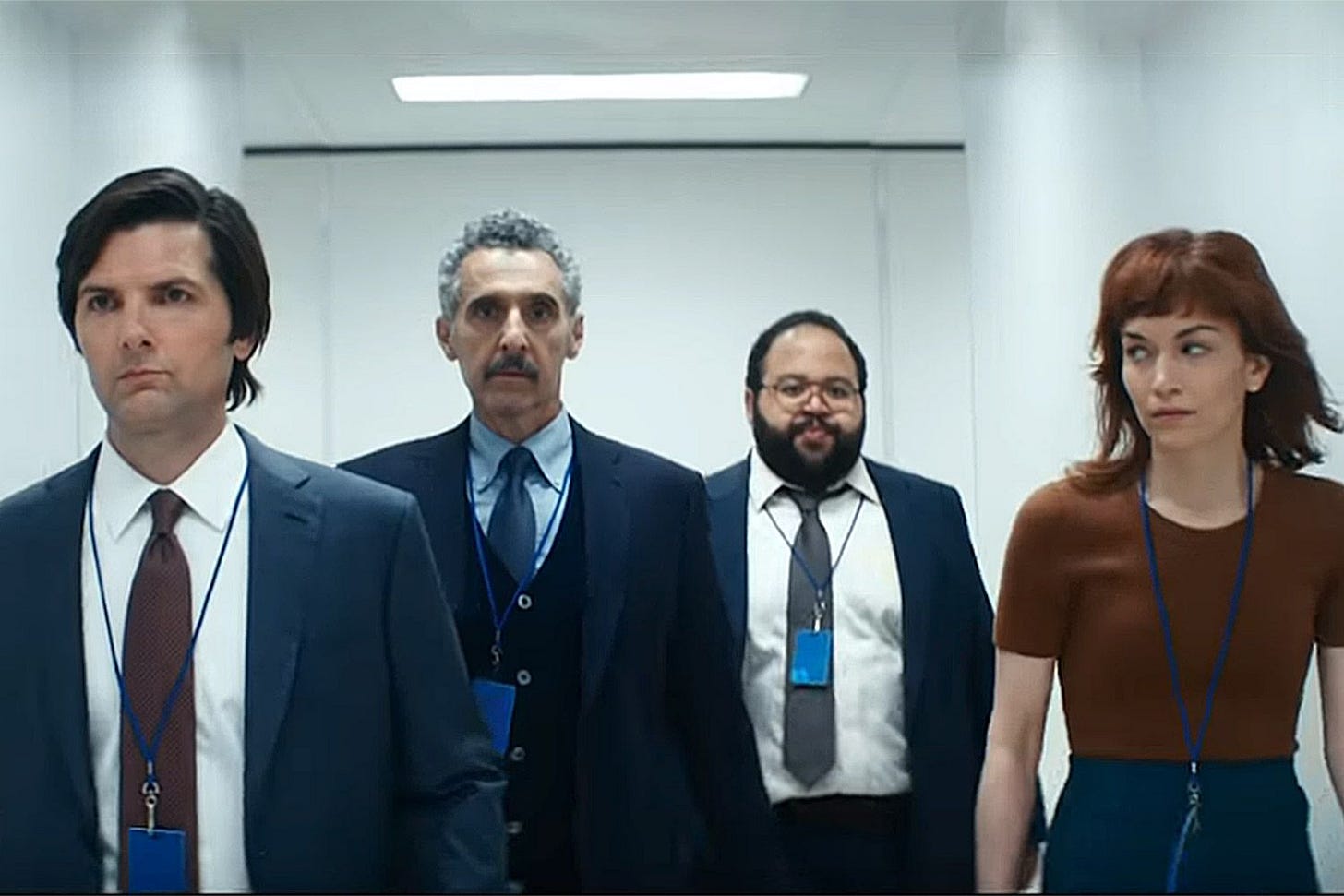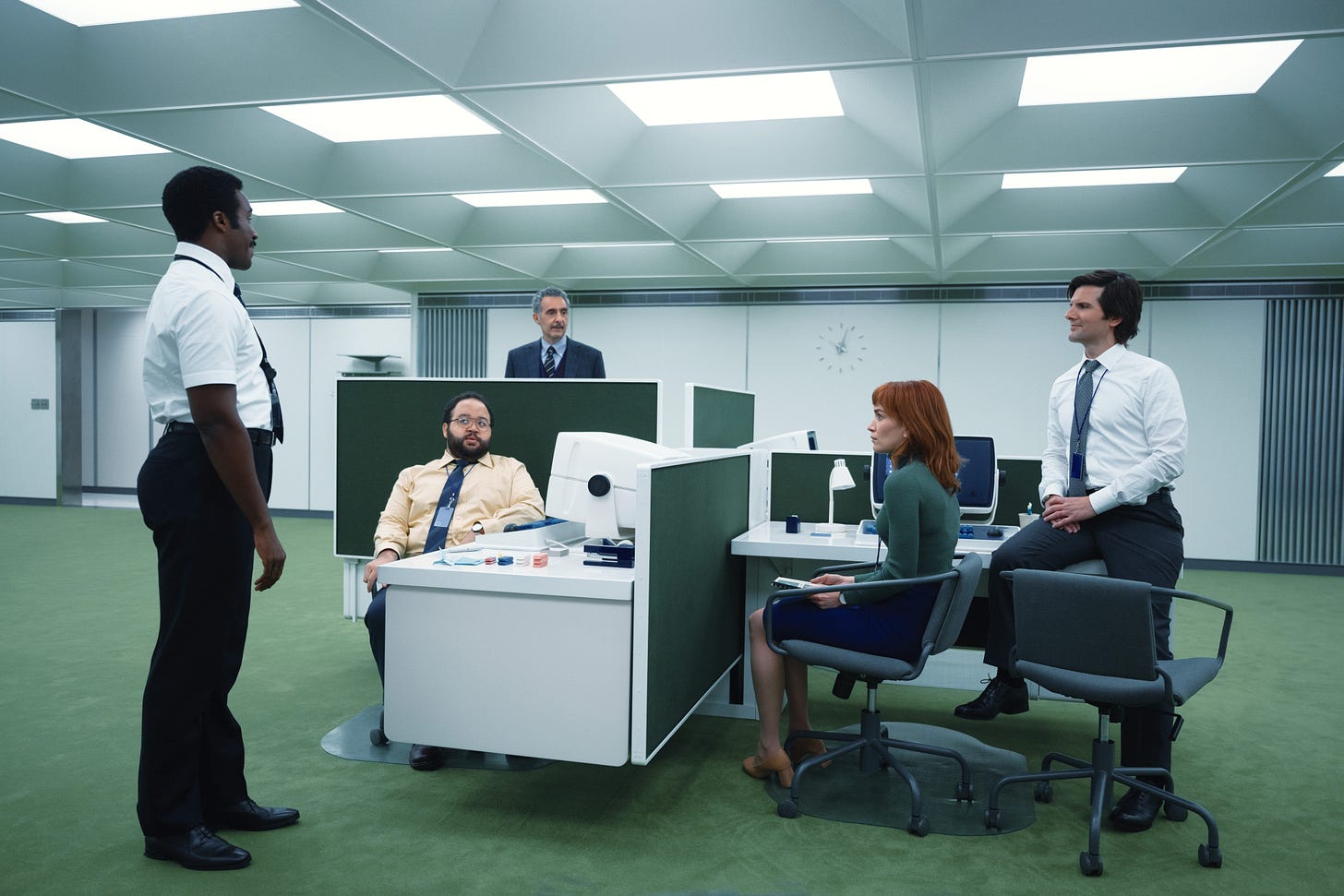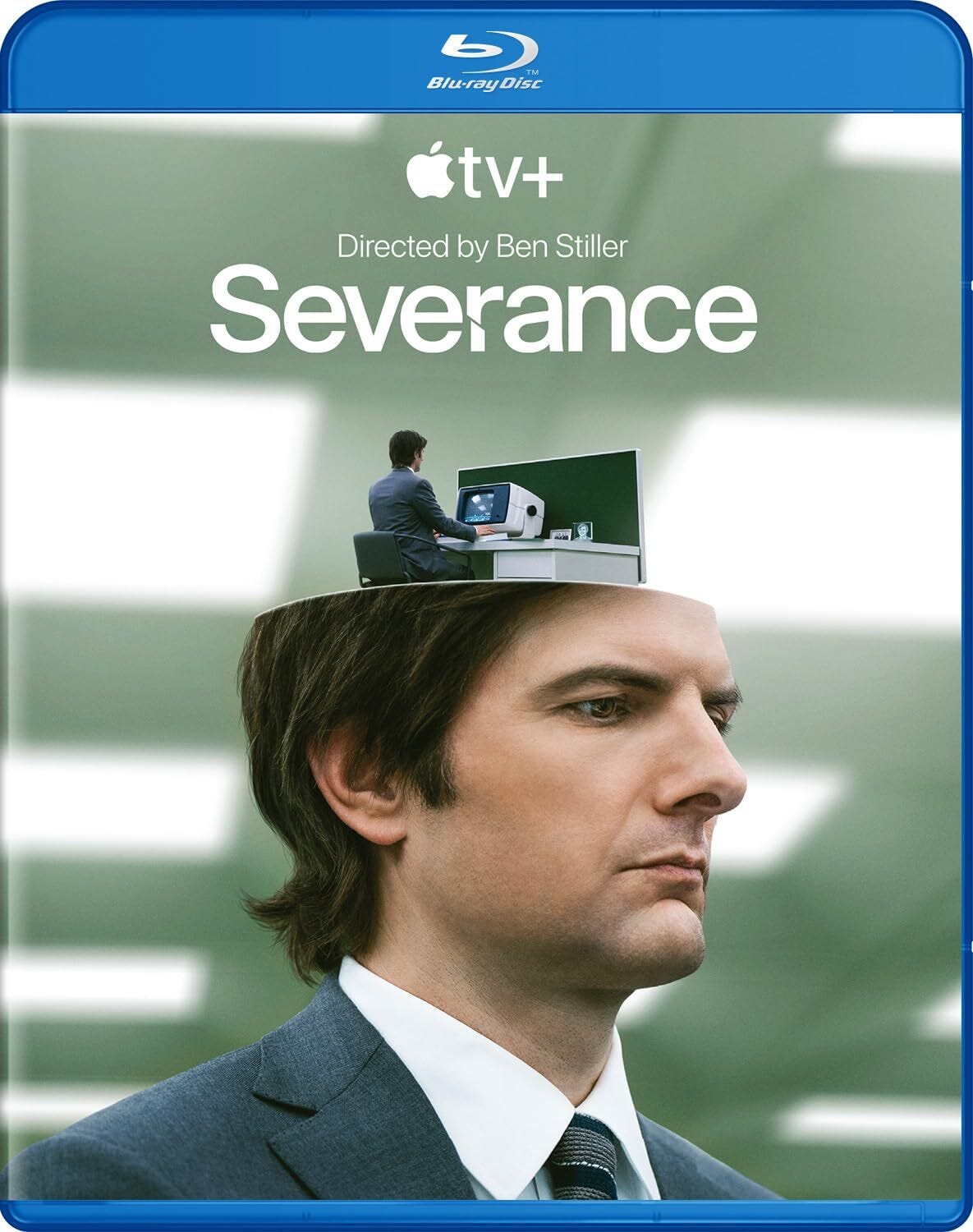
NOTE: If you have not watched Severance but intend to, I urge you to avoid any online exploration. Even the show’s Wikipedia page gives far too many spoilers, which I found out the hard way. Most of what I’ll give you below are minor spoilers occurring within the first part of the first episode. Everything else is speculation on my part.
“What is truth?” - Pontius Pilate, John 18:38
“It’s an unnatural state for a person to have no history.” - Irving B., Severance S1:E3, “In Perpetuity”
I rarely watch current TV shows. I will, but only if someone I trust recommends one, which my friend Matt did with Severance. Yet I never watch the first episode of any show, then immediately watch it again. I did that with Severance, and here’s why:
But first, some backstory. Maybe I’m used to TV shows that don’t try very hard. I grew up watching mostly non-episodic television, which normally featured self-contained episodes with little or no overarching storyline. You know what you’re going to get each time you watch. Marshal Dillon is going to get the bad guy on Gunsmoke. Kirk, Spock, and Dr. McCoy will save the universe each week on Star Trek. Fred Sanford will freeload while his son Lamont does all the work in Sanford and Son. I could keep going through the decades, but you get the point. Most everything is wrapped up in one episode, you do it again next week, and keep doing it until you run out of ideas. Then you keep doing it some more. Many of these series were good, even very good, but producers frequently suffered under time and budget constraints. (You can also add inconsistent quality of writing as a frequent problem.)
Things are different now in ways far too numerous to list here, not only in how shows are created but also in how we watch them. It’s still possible to figure out the premise of a series and know generally what’s going to happen next. When that occurs, viewers get bored. Some of that has to do with low attention spans, but sometimes the show doesn’t know where it’s going, or it gets sidetracked.
This brings me to Severance, a show with an interesting premise that could not be more timely. What if we could live two different lives (or consciousnesses): one for work and one for home? The biotech company Lumon Industries has figured out how to achieve the perfect work/life balance. A medical implant wires your brain so that memories of your personal life are erased from your work life and vice versa. When you get up each morning, you know you work for Lumon, but you’re not entirely sure what you do there. When people outside the company ask what you do at your job, you can give them a general answer, such as, “I work in development” or “I’m a systems analyst.” When you’re at the job, you have no idea that you have a dog, wife, jigsaw puzzle, or anything else awaiting you at home.
Yet your non-Lumon friends and family know you’ve been given the “severance” treatment. It’s controversial, and many people may not trust you or the company. But Lumon continues, probably even thrives.
The first time we see Mark Scout (Adam Scott) enter the Lumon building, he presents his credentials to the lady at the front desk, gets scanned by a security guard named Judd (Mark Kenneth Smaltz), and steps into an elevator. (I’ve skipped one small and seemingly insignificant recurring event. Don’t worry; you’ll see it many times if you watch the show.) It’s not much of a spoiler to tell you that the elevator is (apparently) where the transformation from “home you” to “work you” happens.
Beyond Lumon’s lobby, its interior walls are blindingly white with little to no hint of aesthetics, other than an occasional painting. Its workspaces are startlingly ordinary, only… they’re not. Mark, now referred to as “Mark S.” (reminiscent of Josef K. in Franz Kafka’s The Trial), greets his coworkers Dylan G. (Zach Cherry) and Irving B. (John Turturro). As you might find in any working environment, Dylan G. is the office comedian, quick-witted, and constantly complaining about everything. By contrast, Irving B. is a by-the-book rule-follower who could probably quote the company manual at any time.
All three men are shocked to discover that their coworker and former department head, Petey, has left the company under mysterious circumstances. Perhaps he was the Winston Smith1 of this establishment… Regardless, Lumon is looking for a new employee. (Maybe you’d care to apply?)
We also meet two people who get to use their last names: Mr. Milchick (Tramell Tillman), the severed floor’s deputy manager, and Ms. Cobel (Patricia Arquette), the manager.
Okay, those are the basics. You learn most of this stuff in the first 10 minutes of Episode 1. Severance isn’t really a dystopian science-fiction look at striking a work-life balance; it’s about deception, control, and suppressing the truth. Why else would employees sign a non-disclosure statement, or in this case, go under the knife for an implant that would keep your work/life sides separate, unless there’s something to hide?
Yet the participants were informed of the risks involved before they signed off on the terms. Who knows why they did? Is it the money? The prestige of being part of something new/ground-breaking/important? To be on the winning side (whatever that means to them)?
The big thing happening at Lumon is the concealment of the truth. Again, without specific spoilers, when someone starts to suspect the truth, great steps are taken to silence them.
Sound familiar?
Lumon also seems to be answerable to no one other than itself. (That should also sound familiar.)
Lumon has a history, a backstory that its management and employees are extremely proud of, or at least they sound like they’re proud of it. (Just who are they trying to convince?)
Mark begins to suspect something is wrong, very wrong, at Lumon. He lives by himself, has no wife, no dog, but he does have a troublesome neighbor. Mark also has a relative living nearby, which I will not tell you about any further. All this to say that if Mark does decide to pursue his suspicions, he could be placing himself and others at risk. (Again, not to get too pointed here, but this should sound familiar.)
We get to see more of the world beyond Lumon, not just Mark’s home but the lives of people outside the company. Mark reluctantly attends a dinner that’s not a dinner, which includes some very revealing conversations that I’ll not talk about until I’ve seen more of the goings-on from the “real” world.
If it sounds like Severance is all doom and gloom, it’s not. The show contains many moments of humor and, more importantly, reflections on what it means to be human and the importance of standing up for what’s right. I’m only a few episodes into the first season, and while I fear the show might not be able to live up to its lofty premise (I’m looking at you, Lost), I’m hooked.
More to come. Severance (now in its second season) is streaming on Apple TV+. The first season is available on DVD and Blu-ray.
Thanks for reading.
Protagonist of George Orwell’s novel Nineteen Eighty-Four







